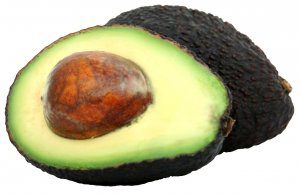Intermittent Fasting: weight loss, what can you eat?
Table of Contents
Intermittent fasting is a widespread lifestyle change many make for various health-related reasons. If you’re curious about how intermittent fasting works, what it does, and who would benefit from it, take a look at the questions below.
1. How intermittent fasting works for weight loss?
Intermittent fasting works for weight loss as well as diets do, but instead of focusing on what you eat, it focuses on when you eat. If you’re following an intermittent fasting regimen, you only eat during specific times of the day and a certain number of hours. Intermittent fasting aims to lose weight, but how does weight loss work with intermittent fasting?
The main goal behind intermittent fasting is to reduce the number of calories you consume daily. This has nothing to do with what you’re eating during this time.
Some use intermittent fasting for weight loss, while others use it to help reduce the risk of health conditions like diabetes or cardiovascular disease. When you reduce the number of calories you consume, you lose weight and reduce your body fat. Excess body fat is what leads to debilitating health conditions, so following an intermittent fasting schedule will help you lose weight and improve your overall health.
2. Which intermittent fasting is best for weight loss?
There isn’t only one approach to intermittent fasting. Since the concept of intermittent fasting became popular as a modern health trend for weight loss, people have found several different methods for it. The 16/8 method is the most popular for intermittent fasting because most of the time spent fasting is spent asleep.
 The popular method for following the 16/8 method for those who don’t have shift work is to consume your last meal around eight in the evening. You wouldn’t eat anything until noon the following day.
The popular method for following the 16/8 method for those who don’t have shift work is to consume your last meal around eight in the evening. You wouldn’t eat anything until noon the following day.
If you follow a healthy sleep schedule of eight hours of sleep a night, you’ll only be consciously fasting for 8 of the 16 hours. This fasting method takes some time to adjust to, especially for those who rely on breakfast for a quick burst of energy. Fasting doesn’t mean you’re not consuming anything at all. You can hold yourself over with water or zero-calorie beverages.
3. How does intermittent fasting reduce weight?
When people think of losing weight, the first thing they think to do is diet. However, don’t confuse intermittent fasting for a diet. However, it’s easier to lose weight if you also follow a healthy balanced diet program during the eating phase of your fasting. Intermittent fasting doesn’t mean you should consume as many calories as humanly possible during your eating phase.

You still want to focus on losing your excess fat and reducing your risk of any adverse health conditions. Consuming as many calories as you can in a short amount of time can also cause indigestion.
If you want to lose even more weight with intermittent fasting, you need to figure out your meal plan during the eating phases. You’ll need to make sure you’re eating nutritious food and getting the recommended amount of daily vitamins and minerals. We’ll cover more about what you should eat specifically in one of the next questions.
4. What intermittent fasting does?
Intermittent fasting has different effects on the body, from cardiovascular benefits to improving insulin. There are a couple of different things your body goes through, such as dropping blood insulin levels to improve the body’s ability to clean waste from its cells. Your human growth hormones also increase, which helps boost weight loss. Short-term fasting with intermittent fasting increases your metabolic rate. The increase in metabolic rate helps boost caloric loss and makes intermittent fasting more efficient.
Following the intermittent fasting plan, even for two months, will show an overall decrease in body fat. Those who follow intermittent fasting have shown a reduced risk of type 2 diabetes, some cancers, some mental disorders, and some heart conditions. Some have reported other conditions as benefits for intermittent fasting including arthritis, asthma, stroke, multiple sclerosis, and Alzheimer’s disease.
However, there needs to be more research on the extended benefits of intermittent fasting. Make sure you speak to your doctor to ensure intermittent fasting is safe for you, especially if you’re pregnant or breastfeeding.
5. What can you eat?
Remember, intermittent fasting is a change of when you eat and not a change of what you eat. However, what you eat can either slow down or improve the effectiveness of intermittent fasting. Water is always a safe bet when it comes to how you should hydrate during intermittent fasting.
If you’re doing intermittent fasting, you should consume foods high in fat content, such as avocados.
 They will keep you full longer and keep you from overeating during your eating period. They will also keep you full during your fasting period.
They will keep you full longer and keep you from overeating during your eating period. They will also keep you full during your fasting period.
Consume fruits and nuts during your eating period. Fruits have plenty of nutrients your body needs to maintain its bodily functions. Nuts have higher calories, but they have good fats. That means you’ll consume less of them while staying full longer.
In the long run, this will improve your caloric intake during your eating window of intermittent fasting. Eggs also provide low-calorie protein to keep your muscles healthy. You may also be concerned about taking Omega-3s during a fast.
6. How does it affect your gut?
Your gut’s microbiome is as important for your body as your heart or brain health. Your gut is a complex system of different organs and bacteria. Our guts also affect our overall health. During our fasting times, we rely on stored glucose for energy. When we’re fasting, we’re giving our guts a much-needed break. Our guts have a chance to repair and recover from our eating window.
 Intermittent fasting helps improve our gut microbiome. Our bodies need beneficial bacteria to help digest food, reduce inflammation, improve sleep, and facilitate weight changes. If you don’t take care of your gut health, you could suffer from high blood pressure, irritable bowel syndrome, cardiovascular issues, or inflammatory bowel disease.
Intermittent fasting helps improve our gut microbiome. Our bodies need beneficial bacteria to help digest food, reduce inflammation, improve sleep, and facilitate weight changes. If you don’t take care of your gut health, you could suffer from high blood pressure, irritable bowel syndrome, cardiovascular issues, or inflammatory bowel disease.
If you’re doing intermittent fasting for your gut health, you should try to fit in more fermented foods into your diet during your eating window. The bacteria in fermented foods help improve the ecosystem of your gut. You could also take probiotic supplements or consume foods with probiotics, such as yogurt.
7. Is intermediate fasting good for diabetics?
Intermittent fasting is popular among diabetics. Diabetes has become more prevalent because of the rising trend of obesity and processed foods. Intermittent fasting for diabetes is still limited, but so far, it has been shown to improve insulin resistance and reduce blood sugar levels.
Diabetics take up intermittent fasting to get their insulin levels to decrease to the point where their bodies can burn the fat they have stored for energy instead of relying on carbohydrates. If you’re going to follow intermittent fasting for diabetes, you should still follow a balanced diet to improve blood glucose level control.
You should also consult your doctor so you can ensure intermittent fasting is safe to do, especially if you’re taking diabetic medication. Don’t overdo it on the foods that will increase your blood sugar levels. Lower the number of sugary foods you’re consuming. These are already tips you should be following for diabetes, but the improved insulin resistance with intermittent fasting will help improve your quality of life with diabetes.
8. When intermittent fasting doesn’t work?
While intermittent fasting sounds perfect for a lot of different medical conditions. It may not work for everyone. You have to keep in mind that intermittent fasting is a change in a way of life instead of a change in diet. However, those who have poor impulses will end up eating excess calories during their eating window. Eating too many calories is counterintuitive and will make any weight loss with intermittent fasting negligible (if any weight is lost at all).
People end up overeating because they feel hungrier. This won’t help if your goal is weight loss. Intermittent fasting should be paired with a healthy, well-balanced diet. People feel they need to catch up on food they’ve missed during their fasting period. Weight loss is still about burning more calories than calories consumed. If you incorporate a diet with intermittent fasting, you’ll have a more effective weight loss result in the end.
Do intermittent fasting smart
Intermittent fasting is very popular, but you have to be educated on what to do and what not to do to have better chances of success with intermittent fasting methods. Whether you’re doing intermittent fasting to improve your insulin, improve your metabolism, or lose weight, intermittent fasting has plenty of health benefits for almost everyone.
Even if you have poor impulse control, you’ll have to limit what you’re eating when your body is still adjusting to an intermittent fasting regiment. If you’re underweight or have other eating disorders, you need to talk to your doctor first. It’s especially important to talk to your doctor if you’re pregnant or breastfeeding. If you have diabetes, take other medications, have problems with low pressure, or are trying to get pregnant, you may have to assess if intermittent fasting is right for you.
When you’re ready to get started with intermittent fasting, look at the different intermittent fasting methods and see which one works best for your schedule. The 16:8 method of intermittent fasting is the most common. You may have to adjust if you feel it’s not working. However, if you can get intermittent fasting to work for you, then you’ll find it’s a powerful process of losing weight and improving your overall health.
If you still have any questions, concerns, or a personal story about the intermittent fasting experience, feel free to comment your thoughts down below.


